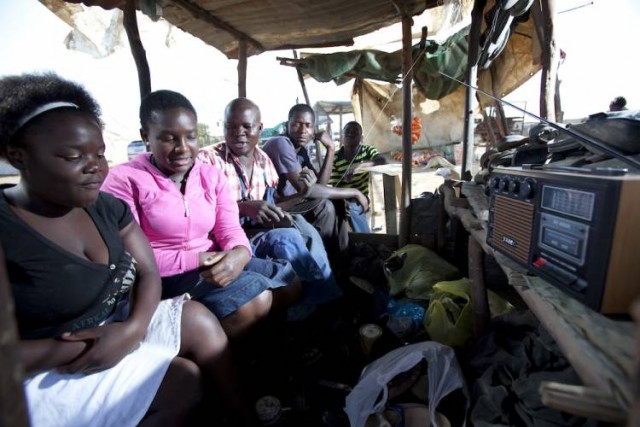Radio and Television
Radio and television can communicate information, arouse strong emotions, and inspire action. African governments, both the European-run colonial administrations and the independent nations that followed them, have been sharply aware of the power of these broadcast media. Governments have generally owned and controlled most national broadcast stations and have used them to promote their views, often censoring programs that opposed those views. Under pressure from both inside and outside Africa, however, governments began allowing a few private stations to operate in the late 1980s. Gradually radio and television broadcasts in some areas are beginning to reflect a broader diversity of opinions.

Role of Radio and TV
Radio got an early start in Africa. The first regularly scheduled broadcasts began in SOUTH AFRICA in 1924, just four years after programming started in the United States. By 1932 EGYPT had several stations broadcasting news, music, and readings from the Qur'an, the Islamic holy book. As colonies gained their independence as nations in the 1950s and 1960s, many established new national stations. Radio became an important way for governments to communicate with their citizens and with people beyond their borders. In Egypt, Gamal Abdel NASSER used radio as a propaganda tool, launching a powerful station called Voice of the Arabs that broadcast to other countries in the Middle East. Radio also became a teaching aid, as in the literacy programs broadcast on many national radio stations.
Today radio remains the most influential electronic medium in Africa because radio receivers are relatively inexpensive, widely distributed, and portable. In addition, radio programming is cheaper to produce than television broadcasts. In rural areas where there are few television sets and in places with limited television service, radio is the main source of information, education, and entertainment. Television, however, is popular in urban centers, as are videotapes. People buy or rent videos of movies from the United States, Europe, India, Japan, and China. Some are legal copies; others are pirate editions made in violation of international copyright laws.
Programming
African radio and television stations broadcast dramas, news, music, talk shows, and documentaries about health, the environment, agriculture, and other topics. Many countries have used fictional but realistic dramas to educate people about social issues such as the status of women. African stations also broadcast international programming, including material from CNN, the Voice of America, and the British Broadcasting Corporation. These radio and television shows include international news as well as programs developed especially for African audiences and delivered in various indigenous LANGUAGES. The Voice of America, for example, produces a daily 30-minute segment focusing on African news as well as events around the world that affect Africa.
Imported entertainment shows, such as television soap operas from the United States, Mexico, and Australia, have loyal audiences, although some critics argue that these programs' violence, sexuality, and emphasis on Western lifestyles make them inappropriate for African viewers. Ideas about how radio and television should operate in Africa often generate debate. Media critics generally agree about calling for an end to government control of the airwaves, but they may have different opinions about what audiences ought to see and hear. Some feel that the flow of programs from industrialized nations to less-developed African countries promotes Western views that are harmful to Africa.
African nations have taken steps to develop their own media industries and services. The Union of National Radio and Television Organizations of Africa (URTNA) was established in 1962. Funded in part by the UNITED NATIONS and international agencies, it promotes the exchange of television and radio programs within Africa, the training of personnel, the media coverage of African cultural and sports events, and the international marketing of African television programs. It also conducts research on the technical aspects of broadcasting and organizes seminars to improve the use of the media in national and regional development. The Television News Coordinating Centre, opened in ALGIERS in 1991, organizes television news broadcasts transmitted by satellite. (See also Cinema, Oral Tradition, Popular Culture, Publishing, Theater.)